This post contains some affiliate links – I would never recommend any product without 100% backing it. So any links are to products I have used for years before having a professional relationship with the brand
10 Common Myths About Vegan Diets and Weight Loss
Veganism has grown in popularity over the last few years With over 700,000 people signing up for veganuary in 2023 (1) and 25 million people giving up animal products during January in 2024 (2).
and with good reason: a plant based diet has been shown to be healthier than a standard western diet (3), it’s better for the environment and sustainability (4) and of course better for the animals. However, despite the growing global popularity of veganism, there’s a more recent trend (on social media at least) of people stopping their vegan diets and switching back to animal products, often citing their health & fitness results as one of the reasons why.
And veganism on social media is not immune to misinformation itself. Although a plant based diet has been shown to be perfectly healthy, may support gut health and weight loss (5) and stated by many nutritional bodies that a well planned vegan diet is suitable for all stages of life (6) it is not the magic weight loss “pill” that some people promise it to be.
Many women went vegan with the hope of ditching the yoyo diets and finally losing weight for food. However when that wasn’t the case – or they reached an inevitable plateau, these same women may look to blame the plan based diet and be tempted to jump on the next social media change in hope that that will be the weight loss silver bullet!
In reality there are so many ways to be vegan that you can have an unhealthy vegan diet or you can have a healthy vegan diet that supports longevity and long term health (7) but does not help you lose weight right NOW. In order for a plant based vegan diet to support your long term, health and weight loss goals it needs to be well planned.
So In this post I’m going to debunk some very common myths when It comes to adopting a plant based diet for fat loss and provide some insight as to where you could be going wrong and what the science says.
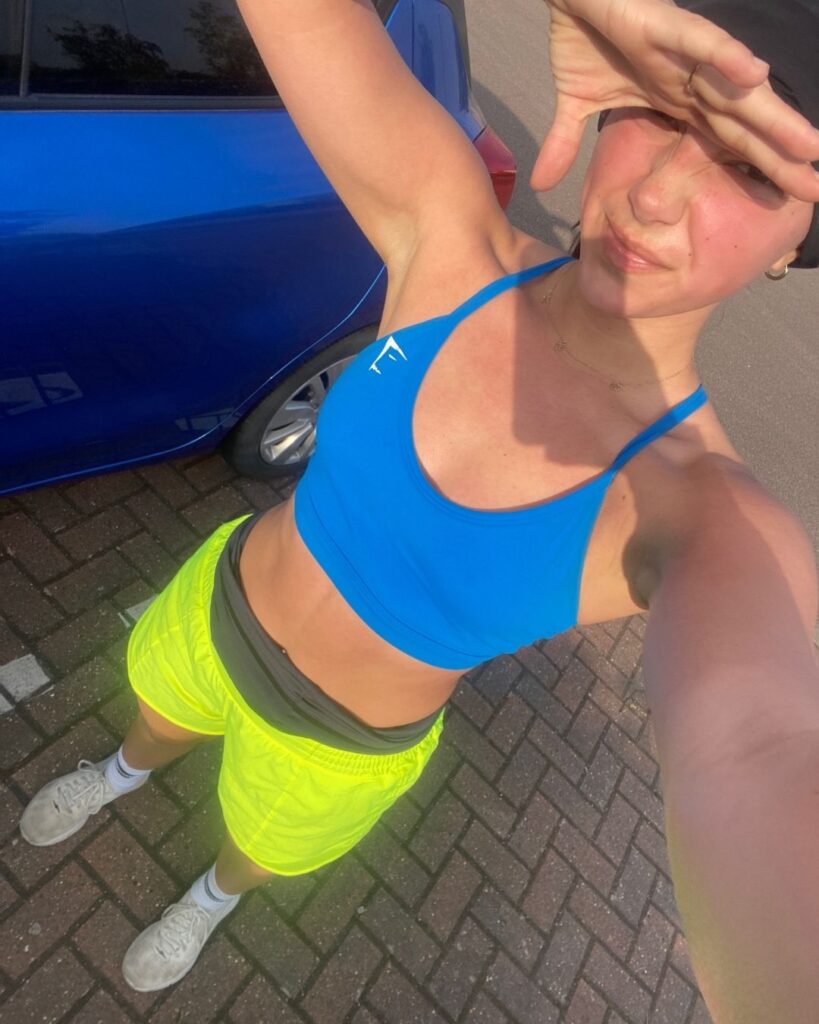
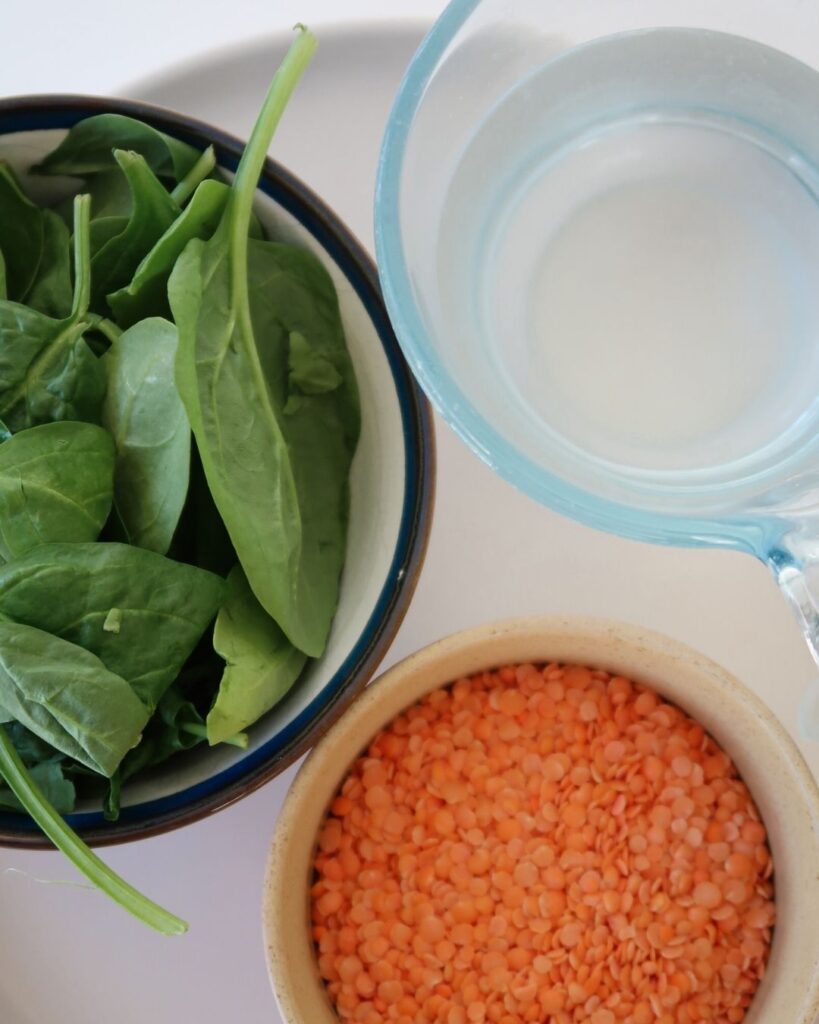
Myth 1 – “You’ll Lose Weight Just by Going Vegan”
Adopting a vegan diet doesn’t guarantee weight loss. Yes when you go vegan you now are looking at an abundance of vegetables, fruits and whole plant foods but do you know what is also vegan? Chips, crisps, alcohol, vegan ice cream, vegan burgers, vegan cheese…
Now in 2024 there is an abundance of vegan junk food options. This is incredible for the eco-conscious vegans and everyone who is vegan for the animals and there is actually evidence that these plant based alternatives are better for health than the animal alternative and small weight loss benefits have been found (8) they may not necessarily be the most helpful foods for weight loss.
What actually does support weight loss?
The only reason any diet has ever worked for anyone; it got them into a calorie deficit. This means they are taking in (eating) less energy than they are using.
The reason a vegan diet has helped many people lose fat is because natural vegan food is very calorie dilute. If you eat the same amount of food but make it out of veggies and fruit, beans, lentils and whole grains, it’ll be a lot less calories than if you made it out of cheese, meats and other animal products.
But that doesn’t mean it’s impossible to eat too many calories on a vegan diet. With these new vegan junk foods it’s completely possible to eat the same on a vegan diet as you were when you ate animal products, negating any deficit and not leading to any weight loss.
So before giving up on your vegan diet because you’re struggling to lose weight, be honest with yourself about your diet and what is making up the majority of your meals. Could you adjust your diet to include more whole plant foods? Maybe you need some help creating that well planned vegan diet for your plant-based fat loss goals?
If you want to book a free health planning session with me to help with your vegan weight loss struggle click here!
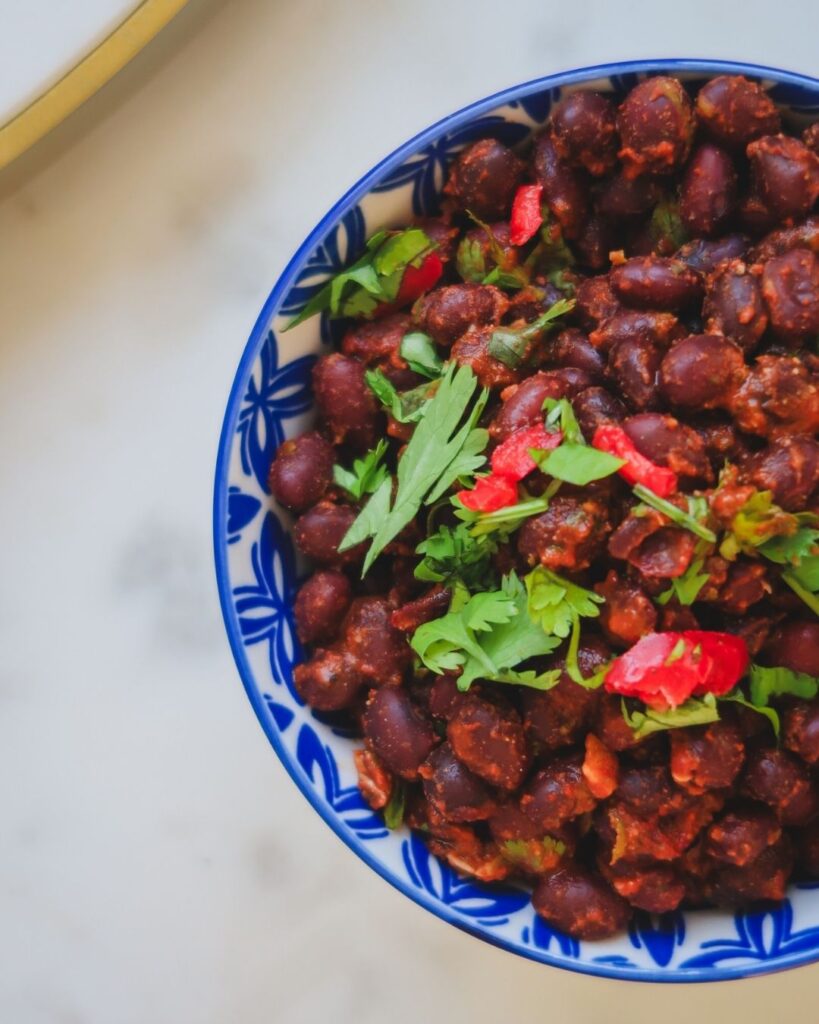
Myth 2 – “You Can’t Get Enough Protein on a Vegan Diet”
Probably one of the most annoying myths for the plant-based dieter and is possibly getting worse with all the high protein recipes and advice floating around online. In reality it’s actually incredibly easy to get enough protein on a vegan diet. And what does the data actually say about protein intake anyway?
Higher protein intake has been shown (9) to aid appetite control and weight management at similar intakes of 1.2 – 1.6g/kg. However, similar to muscle mass and 1RM, it may only help maintain weight loss by about 1 kg in 12 months
And is there any negative effect of increasing our protein intake?
Turns out, yes! (10) shows a dose-response relationship between animal protein intake and mortality risk, especially from cardiovascular disease, one of our top killers. But the same effect wasn’t shown for plant-based protein sources.
The same study suggested that pairing protein intake with other weight loss methods might have a better result. For example increasing fibre, swapping to wholegrains and lowering fat intake have all been shown to support weight loss (11-17).
Super easy plant-based protein sources for weight loss include: beans, lentils, tofu, tempeh, satin, nutritional yeast!
If you’re looking for a list of vegan protein sources and sneaky ways to up your plant-based protein on your vegan diet sign up for my VIP email list HERE to receive a free mini-ebook containing a list of sneaky ways to up your plant-based protein and how much protein I recommended aiming for on a vegan diet.
Myth 3 – “Raw Food is the Way to Go”
For a while the raw vegan diet was incredibly popular online (plz send me a dm if you were on instagram/tumblr in the raw vegan days too) leading many people to believe a diet of fruit, salads and uncooked veggies was the way to go for weight loss on a vegan diet.
Whilst too little fruit intake is actually one of our biggest risk factors (18,19), and raw vegan foods are incredibly healthy and nutrient dense, most evidenced based practitioners and plant-based doctors would advise against a raw vegan diet. In fact at the vegan drs panel at vegan camp out this year when asked about a raw vegan diet all of the professionals were in agreement that it is not the way to go.
The issue is not that cooked foods are better than raw food, it’s not a “cooked vs raw” debate. It is the lack of other super beneficial foods such as beans, lentils, tofu, wholegrains and whole starches (like potatoes) in a raw vegan diet. These foods are all vital for a healthy vegan diet and are all consumed in abundance by our world’s blue zones (20) and yet are all avoided when eating a completely raw diet.
This means a raw food diet tends to be very low in whole complex carbohydrates. These are what actually keep you feeling satisfied and very full, which are your 2 best friends on a weight loss journey to make it actually sustainable long term. Being hungry or feeling deprived is one of the main drivers that make people fall off a diet. When you avoid complex cooked carbohydrates, proteins from beans and lentils and the warming satisfying feeling of a cooked meal, you are missing out on the satiating benefits of those foods.
The downfall is therefore that you are hungry on this diet, it’s hard to stick to and you “fall off”, “fail” and blame yourself when you go back to your original diet.
Removing lentils and beans (as you can’t eat these raw) means that you may be relying on nuts and seeds for the majority of your protein intake. These foods are much higher in fat than they are in protein, making them more calorie dense. Just a quick pinterest search and you can find thousands of “raw vegan desserts” packed with dried fruit and nuts – these desserts are incredibly healthy, tasty and satisfying BUT they are very high in calories and are not so helpful for fat loss.
We need variety in our diets for our gut microbiome, for a range of micronutrient intake and for sufficient energy intake overall. A raw vegan diet is just too restrictive for most people to achieve that. And let’s be honest, for us here in the UK, no one wants to be sitting at home in the dark cold winter only able to eat cold smoothies and salads!
Myth 4 – “Juices and Smoothies Are the Best for Weight Loss”
A pure juice or smoothie diet has all the same issues as a raw vegan diet, the absence of whole grains, starches, beans, lentils and cooked veg. Vegan juice cleanses and smoothie diets have also been incredibly popular weight loss fads in the past and still are if you’re looking for a health retreat. So lets split this into 2:
JUICE: the biggest issue with a juice is that the most beneficial parts of the fruits and/or veg is removed! It’s the fibre! This fibre is what feeds your good gut bugs and what signals to your brain that you are full and satisfied (21-24) which remember are our best friends on a fat loss journey.
Don’t get me wrong, I do love a good veggie juice now and then. They can be great to get in a big helping of micronutrients,* beetroot juice can be great for sports performance but these should never be consumed in excess, definitely not in replacement of proper meals and should be an addition to your diet not your entire diet.
*note: some greens like spinach can actually be harmful in excess. Because juicing concentrates nutrients and makes it easier to consume a large quantity, it makes juicing some veggies a possible danger. So always consult a registered nutritional therapist if you’re going to try any type of juicing at home.
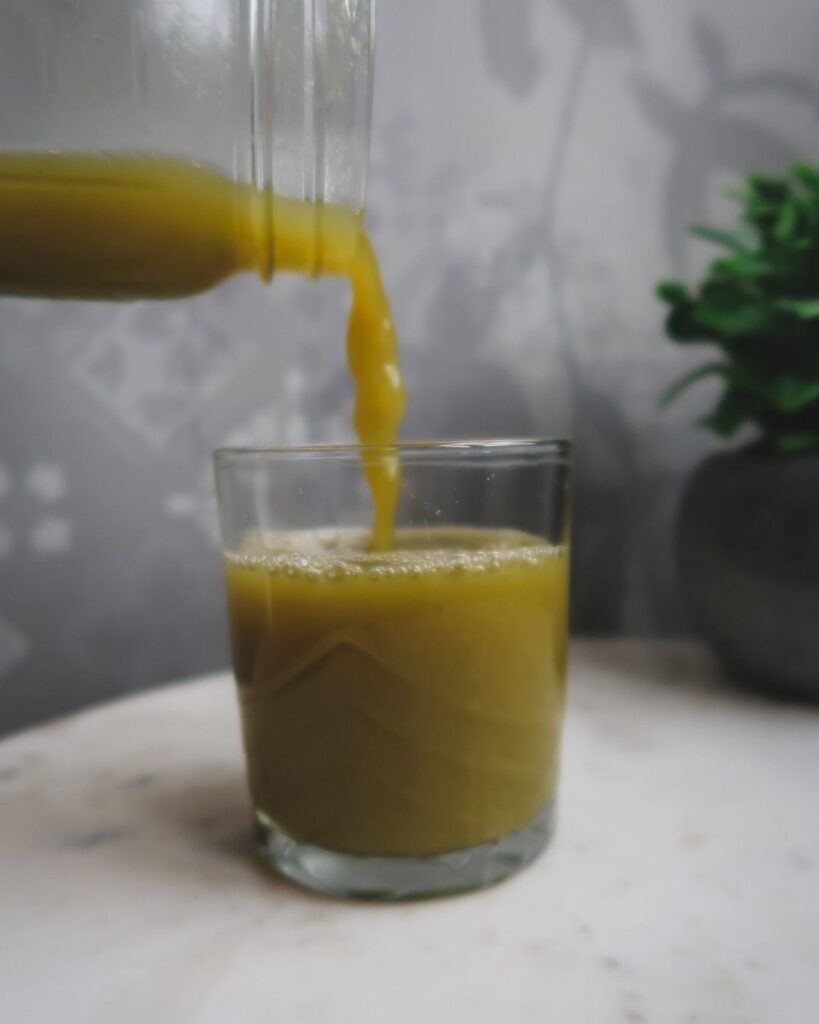
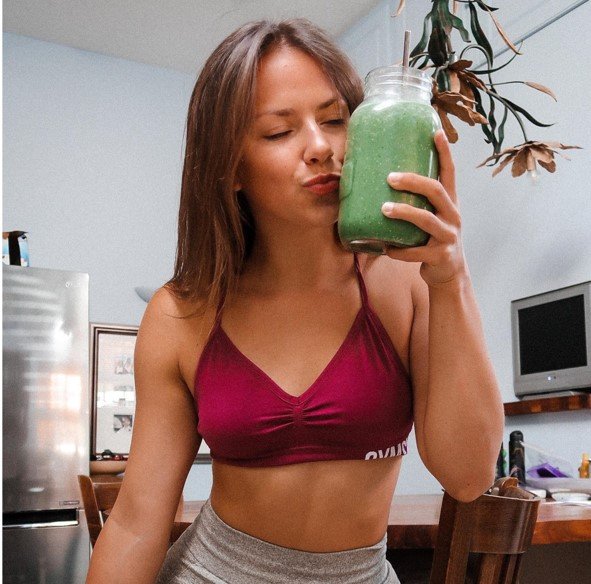
SMOOTHIES: I love a smoothie, enjoy them often and recommend them to many of my clients but they are not always the best option for fat loss.
When aren’t smoothies great for fat loss?
1) You can drink them really fast (25). When you drink a smoothie you consume it much faster than you would the individual components. This means your brain doesn’t have enough time to recognize your fullness cues. Maybe this means you’ll consume more calories than you would the whole food and pull you out of that calorie deficit.
2) It’s easy to ramp up the calories in a smoothie without realising. Add some protein powder, some nut butter, maybe some seeds and you can end up with a very high calorie smoothie – that is very easy to chug down.
How to make a smoothie optimised for weight loss?
Instead when you make a smoothie add a lot of veggies to them – frozen cauliflower makes the creamiest smoothies as does courgette. Add some leaves like kale as smoothies are a fab way to get in more micronutrients while keeping the fibre. I would then recommend drinking them slowly and mindfully so you are aware of your hunger cues as you go. You can even make a super thick smoothie, pop it in a bowl & make a vegan smoothie bowl that you eat a lot slower with a spoon! A perfect meal for a fat loss goal!
Myth 5 – “A Vegan Diet is Expensive”
Is a vegan diet expensive? Especially a healthy one for weight loss? The answer is not necessarily. A vegan diet can be completely affordable, you can create budget friendly vegan meals that support your weight loss goals very simply and easily. The cost of a vegan diet usually becomes extravagant if you’re opting for plant-based junk food alternatives. Even then they aren’t necessarily more expensive than the animal meat alternatives (cheese and meat is expensive!!!) There’s even a study that looked into this and found that a vegan diet was cheaper than a traditional diet (26)
Some budget-friendly vegan staples for weight loss include:
- Potatoes
- Broccoli
- Cauliflower
- Courgette
- Brown rice
- Beans
- Lentils
- Oats
- Chickpeas
- Bananas
- Apples
- Frozen veggies
- Canned tomatoes
It may take a while to build up some staples like: vinegars, nutritional yeast, new herbs and spices, but you can do this very gradually as you learn more and more recipes.
You can also buy lots of vegan foods in bulk that keep for a long time. You can meal-prep bulk meals that freeze easily such as pasta sauces, curries & pre-chopped veggies for stir frys. This will all make foods last longer – you can then buy the fresh produce on offer or in season to make budget-friendly vegan meals!
This next point is obviously not for everyone, those who genuinely struggle financially see the advice above and check out the links below. If that’s not you but you’re still finding yourself unwilling to spend a little more on healthy food each month, is that really the truth? If you constantly tell yourself you can’t afford to prioritise your fitness goal right now, and yet continue to do big clothes hauls, order takeout once a week or spend a lot on drinks out each weekend you’re telling yourself that your health isn’t worth the investment.
Sometimes biting the bullet and investing in your health and yourself with a good PT, coach or nutritionist is exactly what will give you the push, prioritise your goals and actually see changes in your life.
Extra links and advice for vegan healthy diets on a budget:
https://ilovevegan.com/resources/vegan-lifestyle-on-a-budget/
Myth 6 – “You Won’t Get Enough Nutrients on a Vegan Diet”
The most infuriating vegan weight loss myth as a nutritional therapist! A vegan diet can be completely adequate for all vitamins and minerals when it’s planned well. If you are a new vegan or concerned about your nutrient intake, this is one of the things I work with my clients to ensure overall health & longevity. If you’d like to book in your free health planning call with myself please check availability here. Otherwise here are some common micronutrients people worry about on a vegan diet:
Omega-3
Omega 3 is the next nutrient of concern from the anti-vegans out there. Omega-3 actually isn’t a vitamin or mineral, it’s an essential fatty acid. This means it’s a type of fat that we can’t make in our body so we must obtain it from our food. My favourite whole food source is from ground flax seeds – which are also an incredible source of fibre and may also be beneficial for fat loss so a win win. I add about 2 tbsps to my oats every morning.
Some other sources are chia seeds and walnuts.
Alternatively you can supplement with an algae oil supplement. Turns out fish don’t actually make the omega 3 themselves; it comes from algae! So as a vegan we can get our omega 3 directly from the source. Vivo life also do an algae supplement that I like to add to my smoothies.
B12
The main vitamin concern on a vegan diet is vitamin b12 (27) . This is difficult to get from plant foods and the main food source is from fortified foods. Of course if you’re on a plant-based weight loss journey you’re probably not eating many fortified processed foods other than plant-milk and so a b12 supplement is likely necessary (please check with an NT or your gp before self-referring supplements). A B12 supplement is extremely easy to find and becoming very affordable. I usually recommend a sublingual vitamin b12 in a liquid form for optimal absorption.
I particularly like the brand vivo life due to their sustainability values and rigorous testing is only 21p per serving and can be ordered on subscription so you never have to think about stocking up when you run out. But please consult a professional like myself or your GP before adding any new supplements to your routine as they may have other effects such as interactions with medications.
Iron
Although iron is simple to get on a vegan diet, observational studies show vegans have a lower iron intake and status (28). However this is observational research looking at what vegans on average actually eat. It’s not an assessment of an ideal “well planned” vegan diet, which absolutely can include enough iron.
Current NHS guidelines suggest intakes of: 14.8mg a day for people with a mensural cycle & 8.7mg a day for those without a monthly cycle (including younger girls and post-menopause).
Some common plant based foods higher in iron (other foods also contain some levels of iron so remember your total intake will be the sum of all of these foods. The ones listed below are just some foods that are particularly high in iron).
All iron quantities are as found in 100g of that food:
- Green lentils 7.2 mg
- Cashews 6.6mg
- Almonds 3.7mg
- Oats 4.7mg
- Tofu 5.4mg
- Flax seeds 5.7mg
- Red lentils 3.3mg
- Temephe 2.7mg
- Spinach 2.7mg
- Swish chard 1.8mg
- Kale 1.6mg
As you can see from this list, many of these foods including lentils, oats, tofu, flax seeds and dark leafy greens are all ideal foods to support weight loss on a vegan diet as well as providing a good chunk of iron!
What else can you do?
Iron found in plant foods is in the form of non-heme iron which may not be absorbed as well as the heme iron found in animal foods. However there are things you can do to boost absorption.
- Avoid tea and coffee around mealtimes – at least 30 mins after a meal, as they may inhibit absorption of iron
- Consume a source of vitamin C (eg found in citrus foods) with your plant based iron source to encourage absorption.
- Fermented Vegetables: Sauerkraut, kimchi, and other fermented vegetables can be beneficial for improving iron absorption. (29)
If you are concerned about any micronutrient I really recommend booking a consultation to discuss how your diet may need adjustments to be well rounded or if you need any personalised supplement recommendations. Many medications can deplete some nutrients and high exercise output or certain health conditions may increase your demand for other nutrients. If you’d like to book a free health planning call with myself click here. To learn more about my 1:1 consultaiton process click here. The benefits to working with myself, a plant based health professionals member, is that as a vegan myself I will always support your ethical choice to be vegan and work with that as we work towards your health goal no matter what that is. Never will you hear me encouraging you to try animal products again, instead we’ll work together to find a solution and meal ideas to support you.
Whilst on the it’s important to note that ALL diets have insufficiencies (30) the standard western diet is deficient in many vitamins and minerals that are abundant in most plant based diets. I would rather consume a diet shown to reduce the risk of many of our top killers (31-33) and supplement where needed for optimisation, than consume a diet that could compromise my long term health (and ethical values).
Myth 7 – “Vegan Diets Are Always Healthy”
Many new vegans struggling with weight loss may fall into this trap of vegan / plant based = healthy which is simply not true.
Touched on this at the start but a vegan diet is not inherently healthy. A healthy vegan diet should include an abundance of fruits, vegetables, leafy greens, beans, lentils, wholegrains and whole starches. Occasionally opting for plant based meat alternatives for occasions or meals out.
Your average diet is what will produce your results. So if your average diet is vegan junk food 50% of the time that’s the result you’ll get, vs if your diet is whole plant foods 80-90% of the time that’s the result you’ll get.
If you need help creating meals, sticking to your healthy habits or want an accountability partner helping you along – click here to book a free health planning call with me.
Myth 8 – “It’ll be time consuming”
This one is tricky because honestly losing weight on any diet is going to require some time and energy put into it. And the same as any other diet – there are ways you can combat this by putting in more energy elsewhere to help save you time on the days you really need it.
- Make food ahead in bulk – frozen for when you’re in a pinch
- Invest in good tools that you’ll actually use eg: a microwave veg steamer, air fryer, really good non-stick kitchenware, storage containers you can actually use (ie. not lose all the lids to)
- Plan a set time to prep each week.
- Ingredient prep if you don’t like repeat meals. Instead of pepping a whole meal try boiling some potatoes, cook up some brown rice, pre-chop your veggies, or marinating some tofu. Then you’ll have ingredients ready to chuck in a bowl/oven tray to cook.
- Having some staple meals that are easy and quick and can be your go to (see point 9)
- There are some packaged foods that can be super helpful – wholegrain & lentil microwave pouches, pre-chopped frozen veggies – so many options that can be helpful.
But again there are so many ways you can tackle this but time to prep is an issue you’ll find on any other dietary pattern when trying to hit any fitness goal – it will require some time invested.
All of these things are exactly what I help my clients with. Together we come up with ideas and strategies to make it as easy as possible for you to create meals that will help you achieve your goals. I’m always on the other end of the laptop or your phone if you need any advice or a quick tip!
If you want new recipes monthly – I create 5 new vegan recipes for the members of Pilates and yoga with Jade every month. Click here to check out her membership including regular workout classes and first dibs on our vegan retreats together
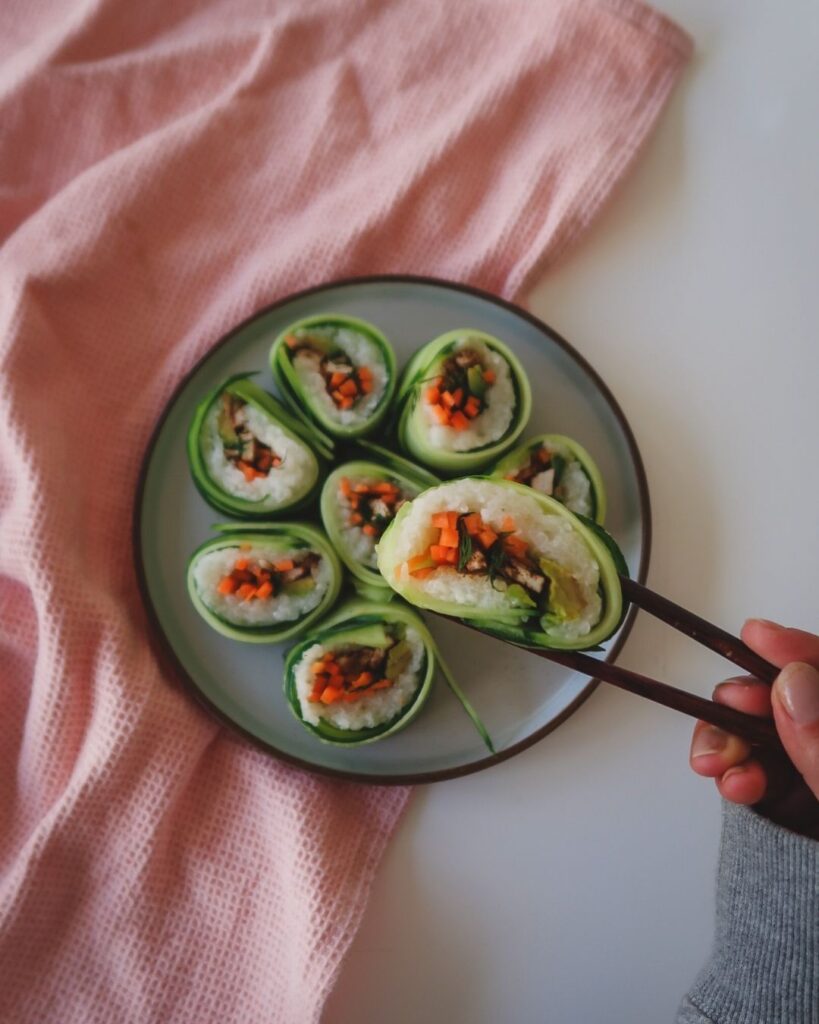
Myth 9 – “Vegan Diets Are Boring and Lack Variety”
There are so many exciting vegan recipes out there just waiting for you to try! In fact many people find they eat a BIGGER variety of foods when they go vegan. I certainly fall into that category. I was an incredibly fussy eater before going vegan and going vegan is what encouraged me to try so many new foods. This actually means that there are many foods I have only ever had the vegan equivalent of: mac and cheese, bolognese, lasagna, burgers and sausages. Mushrooms, courgettes & tomatoes are just some examples of foods I had never eaten until I went vegan and I very internationally added them into my diet.
HOWEVER
Diversity and constantly looking for new vegan meal ideas may actually hold back your progress when it comes to weight loss. Think of athletes and bodybuilders – they very often eat the same meals day in day out in order to hit their nutrition goals.
Now I am not saying you need to do this, but having 3-4 staple recipes that you can make quickly, easily, are satisfying and tasty is what will help you actually get consistent enough to see progress. These meals are going to be different for everyone!
This is one of the things I help my clients do, we figure out the recipes that work for them and that they can repeat easily. I also help teach them what to look out for in a recipe they might find online that could make it helpful or unhelpful for weight loss. This means they can go out onto pinterest, instagram or wherever to find exciting vegan meals and be able to pick out which ones will help them with their goals & how to manipulate it for fat loss!
Myth 10 – “You’ll Be Hungry All the Time on a Vegan Diet”
Feeling hungry on a vegan diet is very common for people who immediately switch to a whole foods plant based diet because fruits and veggies are so calorie dilute. If you eat the same size meals but with only these whole plant foods you can very rapidly lower your calories. This might mean you actually need bigger meals to be full enough and still lose weight on a vegan diet.
On top of this so many women who have been struggling to lose weight for years tend to cut out carbohydrates from their diet. Carbohydrates are exactly what keep you feeling full and satisfied. So if you switch to a vegan diet and continue to not eat enough carbohydrates you are very likely to feel hungry. You absolutely can get into a calorie deficit and still be full, satisfied and enjoy really tasty food.
Actually a whole foods vegan diet can help with hunger when losing weight
This is because when we lose weight our body doesn’t actually like that. Our body wants us to hold onto energy for future famine, we’re very good at surviving. So when we start to lose weight our body ramps up our hunger (and this is true on any diet not just a vegan one) However famine is now very unlikely and we live in a world where food is abundant so this is quite obviously unhelpful for a fat loss diet. BUT if you change your diet to include more calorie dilute foods, more health promoting foods vs just eating smaller portions of whatever you were eating before, this effect is lower. Meaning a whole food plant based diet is MORE helpful. Big win for plant-based fullness!
There are so many myths and misconceptions about a vegan diet and especially when it comes to weight loss on a plant based diet. But once you learn about how to manipulate your vegan diet for you, your goals and your health, you can absolutely reach any of your goals! If you still have any questions or want to reach out for a free call with myself (here we go through your health goals, a little of why you want to achieve them & you can ask me any questions about working with me 1:1) click here or send me an email NAtuallyginnutriton@Gmail.com
References
- https://veganuary.com/veganuary-2023-in-review/
- https://veganuary.com/veganuary-2024-campaign-in-review/
- PMID: 38032644
- Scarborough, P., Clark, M., Cobiac, L. et al. Vegans, vegetarians, fish-eaters and meat-eaters in the UK show discrepant environmental impacts. Nat Food 4, 565–574 (2023). https://doi.org/10.1038/s43016-023-00795-w
- PMID: 32987642
- PMID: 38032644
- PMID: 38032644
- PMID: 32780794
- PMID: 25926512
- PMID: 32076944
- PMID: 19158230
- PMID: 20016015
- PMID: 28327566
- PMID: 15531671
- PMID: 28765396
- PMID: 9001476
- PMID: 26250104
- PMID: 25073782
- PMID: 38068771
- PMID: 30202288
- PMID: 29704862
- PMID: 31174214
- PMID: 7615267
- PMID: 20130660
- PMID: 21356139
- PMID: 37669055
- PMID: 31752105
- PMID: 35010904
- PMID: 25672527
- PMID: 35010904
- PMID: 38032644
- PMID: 34205679
- PMID: 35719615
